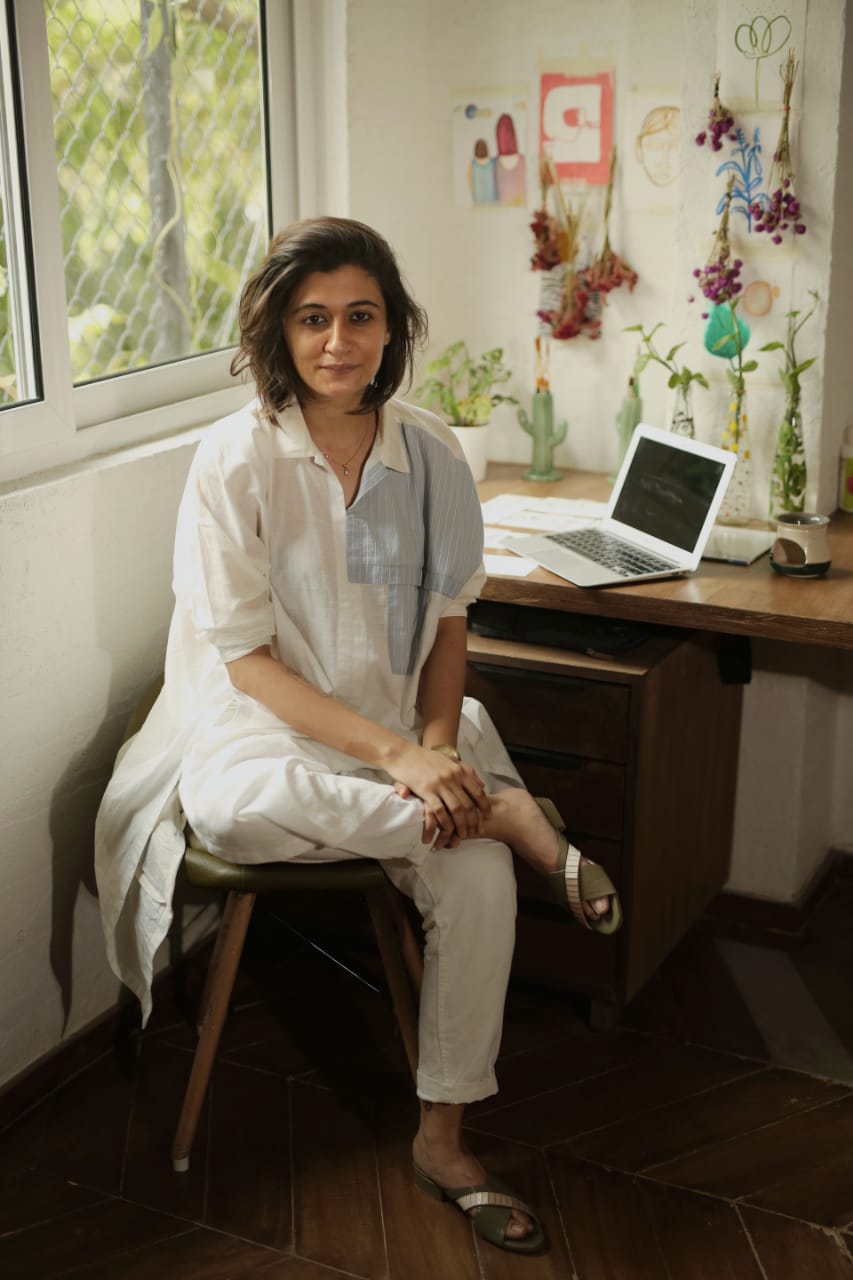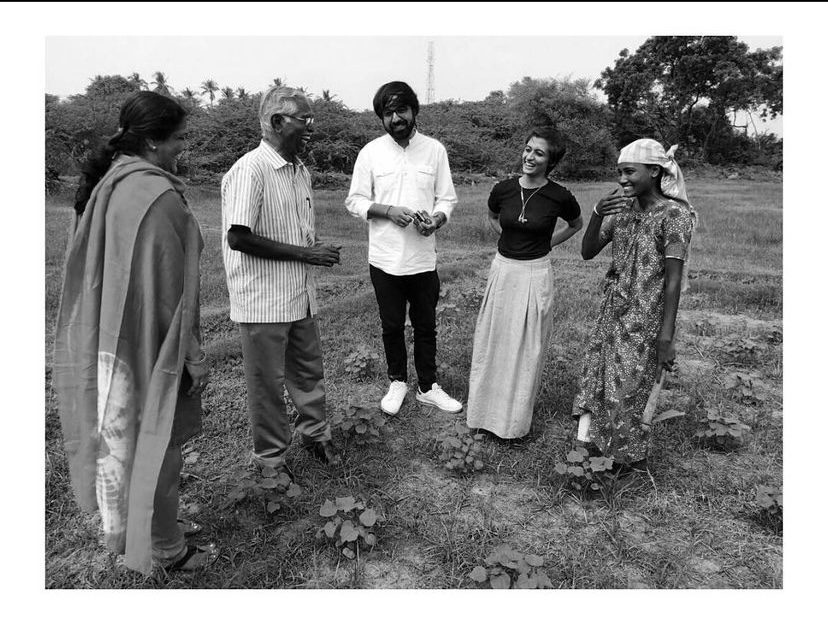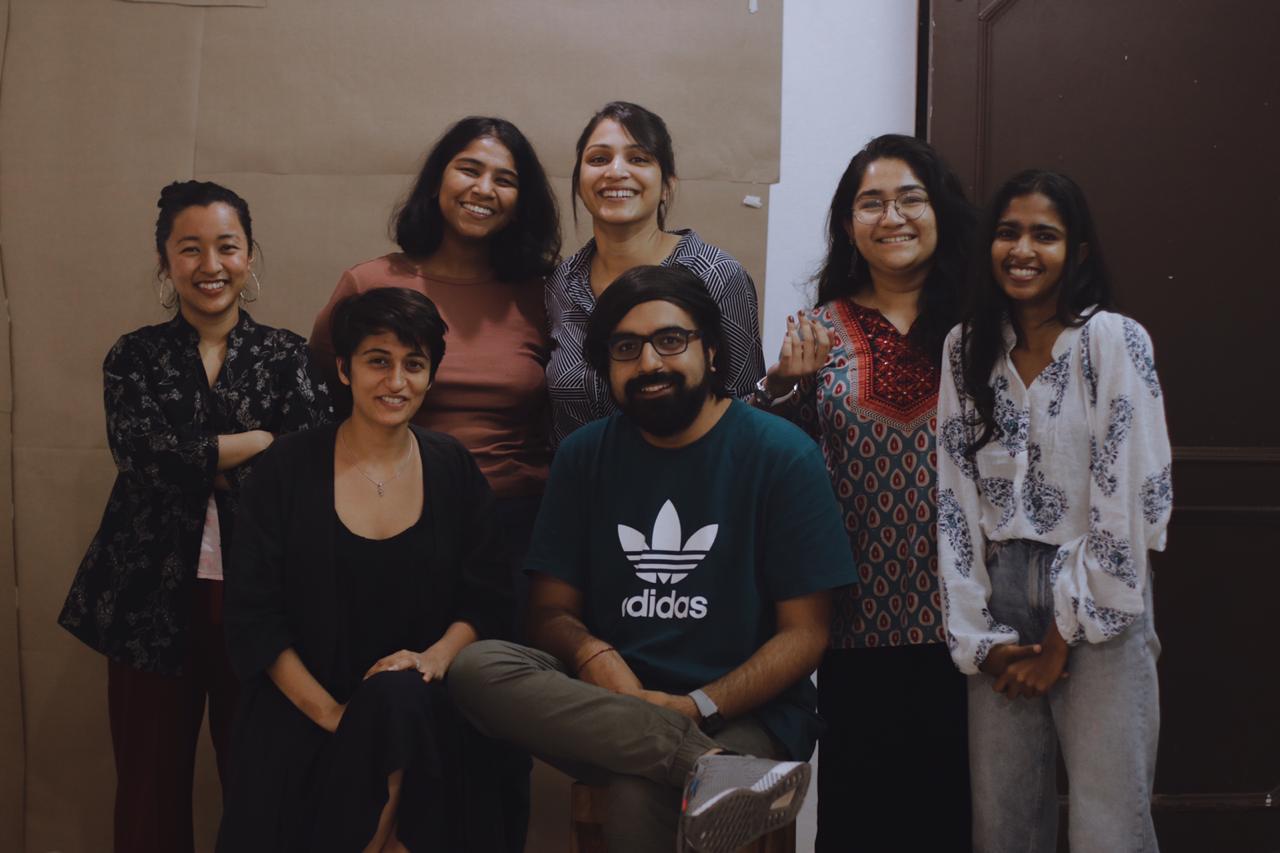(July 9, 2022) Fashion is one of the fastest growing industries in the world, and also one of the sectors that generates tonnes of harmful waste every year. When I ask fashion designer Kriti Tula, what I can as an individual do to help reduce this waste generation, she advises, “Consume consciously. One can make a difference just by the way they shop.” Connecting with Global Indian for an interview, the young sustainability champion adds, “Consumers, the key drivers of sustainability, need to be willing to slow down and pay the right price for consciously creating clothing. Bringing a change is a lot more difficult when everyone is just looking for discounts and we are all paying a heavy price to produce things cheaper and faster.”

Kriti Tula, founder Doodlage
The Delhi girl, who started Doodlage in 2012, has been a vocal environmental activist and has brought forward the impact of the fashion industry on the environment. For her efforts to upcycle the waste produced by the garment industry, Kriti was recognised by the Lakme Fashion Week Gen Next Platform and won the ‘Green Wardrobe Initiative’ by HUL and Grazia Young Fashion Award. In 2012, the 33-year-old fashion designer was also one of 17 climate champions selected by the United Nations.
Socially conscious
Born and brought up in the national capital, Kriti was introduced to the concept of consuming things consciously very early in life. Coming from a middle-class family, the fashion designer says “it was just a way of life back in the day.” Apart from being brilliant academically, Kriti took part in various voluntary works. “I have enjoyed volunteer work growing up – from helping out at blind schools to old age homes,” says the fashion designer, adding that organising such drives is still a big part of Doodlage.
Attracted to art since her childhood, it was during her school days that Kriti was first introduced to doodling. “Growing up, I have been that kid in the art room who explored various mediums that they enjoy. That’s when I started doodling, and in fact, I still try to doodle every day,” shares Kriti, who pursued her under graduation in apparel designing at Pearl Academy in Delhi. “I developed an interest in designing at the age of 13. However, a lack of awareness at the time led me to fashion,” shares Kriti.

After her graduation, the youngster moved to the London College of Fashion for four years to pursue a master’s in design management on a full scholarship. The fashion designer speaks very fondly of her years in London. She says, “Understanding another culture, learning from a new market and getting exposed to a different education system was a great experience. I credit a lot of my growth to these years.”
Visiting various production houses at the time made Kriti think hard about the kind of wastage created by the fashion industry every year. “More than 50 percent of textile waste ends up in landfills, as there are no ways to reuse them,” shares Kriti, adding, “A mix of my background growing up, being exposed to waste at export houses and just the overall culture of mass production was enough to drive me away from it. I have worked since then to educate myself about various alternatives to fast fashion, meet numerous ethical production units, and the culture that could prevail if we humanise the supply chain. I think that has been enough to motivate me to work towards it.”
Making sustainability fashionable
In 2012, after earning her masters in London, Kriti decided to return to India. Having gained a global perspective on the fashion industry, Kriti shares that as a designer she was always inclined to find solutions, and Doodlage started with exactly that agenda. “We aimed to start a conversation around ways to bring circularity in fashion and raise awareness around the impact of a linear fashion model. As we were a bootstrapped firm, we decided to work with one problem at a time. I carefully curated our small supply chain,” shares the 33-year-old fashion designer.

Kriti during a field trip
Doodlage started collecting fabric waste from factories around Delhi, which had been rejected because of minor defects but which were big enough to be stitched back together to cut more pieces. This allowed them to create limited edition collections, saving tonnes of fabric from ending up in landfills. As the company grew, Kriti found herself “more committed to building a social enterprise making sustainable clothes.”

Doodlage’s collection is simple and yet quite unique
Armed with 20 employees, the majority of Doodlage’s sampling, designing, and marketing happens at the studio in Delhi where they employ local artisans. Shedding light on the production process at the fashion house, Kriti shares, “We collect factory waste, fix our material, patch panel and embroider to optimise the use of the fabric we source. We save all resources that would go into making virgin material. What we waste in our supply chain goes to NGOs to create small products like accessories and toys for kids. What is left over is recycled to make paper for our notebooks and packaging.”
Long road ahead
Her sustainable fashion brand started earning profits from the first year of operations, however, Kriti expresses that every year came with a new set of challenges. “Our organic reach accounts for almost 16-20 percent of our sales. But there still is a lot to be done to make Doodlage a global brand,” says the fashion designer. She has recently expanded the company’s operations to Bengaluru and Jaipur, where they are looking to make recycled handloom material, using yarns that are made from shredded post-consumer garments.

Kriti with her team
Although the awareness about the impact of the fashion industry on the environment has grown manifold since she started her company, Kriti feels there is still a long way to go. Explaining that multiple stakeholders have to work together to bring about a larger change, the fashion designer feels that the government also needs to enforce laws to hold brands and production houses accountable for the waste created. “Solutions have to be created at the design stage using the right material and thinking about the end of the life of a garment is necessary. Also, cleaning the supply chain to pay our artisans a better wage is very important,” Kriti says, as she signs off.
Also Read: Refiberd: How Sarika Bajaj and Tushita Gupta use AI to tackle the textile recycling problem
Also Read: Mohanjeet Grewal: The 92-year-old who introduced Indian fashion to Paris



